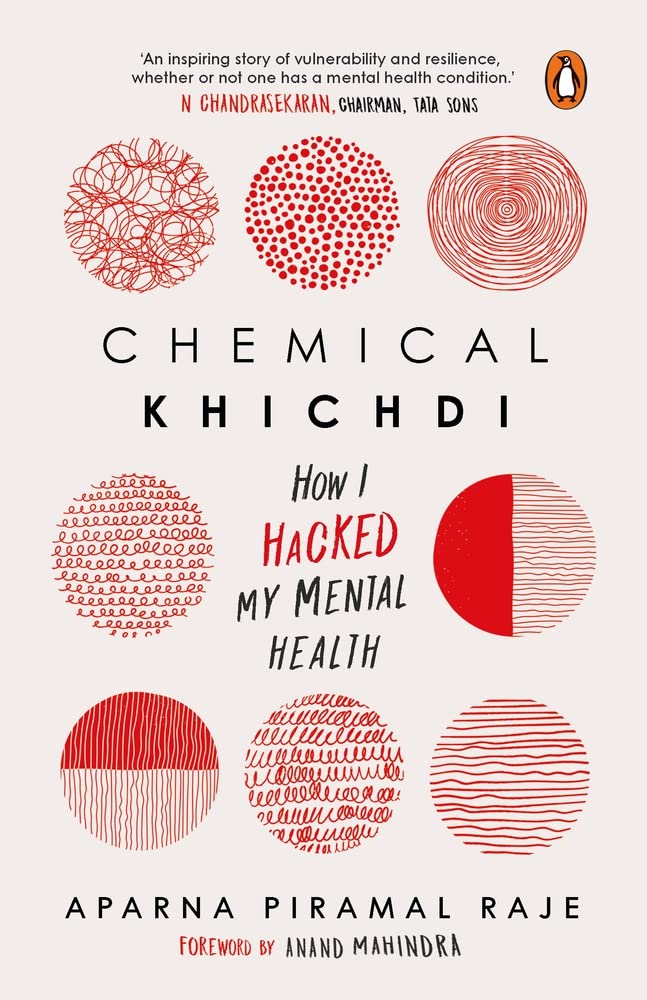
Shivani Maheshwari, who interviewed Aparna Piramal Raje shares her views about the book "Chemical Khichdi" and why she recommends it
The book ‘Chemical Khichdi – How I Hacked My Mental Health’ by Aparna Piramal Raje is a journey into the mind; a beautiful mind affected by bipolar disorder. Right at the outset in the first line of the introduction, Raje lays bare her health condition without reserve – ‘I have
lived with bipolarity – classified as a serious mental illness – for over two decades.’
This candour and up-close chronicle sets the tone of the book. Raje covers in great detail her episodes of mood swings ranging from depressive lows to manic highs. On occasions of overloaded emotions, she narrates how she seeks inner stillness and anchors in paintings,
poems, music, medications and a host of everyday associations. She quotes doctors, psychiatrists, friends and relatives to understand and figure out her bipolar disorder. A gifted poet, she sprinkles the book with poems for various occurrences. Like when she first began
taking medication and marks her acceptance of bipolarity.
Hormones and neurotransmitters,
This is entirely new terrain
Imbalances, synapses, major lapses,
The battleground is the brain.
Being a writer, columnist, public speaker, educator and adviser with multidisciplinary thinking, with qualifications from University of Oxford and Harvard Business School, Raje has an easy and engaging style of writing. The ample examples of ups and downs from her everyday life, renders Chemical Khichdi an open-book memoir making it simple and convenient for the reader to understand the complexities and spasms of bipolar.
The second part of the book deals with The Seven Therapies which helped her survive and thrive in life. In a chapter titled ‘Love Therapy: Mental Health is a Team Sport’, Raje expresses her gratitude for the huge circle of support - comprising her mother, sister, husband, children, in-laws, numerous relatives and friends - vital for someone with bipolarity. She delves at length on matters in her life, without brushing anything uncomfortable under the carpet, whether it is about her parent’s divorce, her sister who is "openly gay", the difficult moments with her husband, the puzzled expressions of her children. ‘As much as Amit (husband) has tried to shield the children from my fluctuations, the children have seen their mother behave strangely at times,’ she writes straight-out.
Even though Chemical Khichdi deals with mental illness, at no point does it get morose and negative. There is hope and positivity in every page. While Raje burrows into her vulnerabilities, she also ascertains her potential and possibilities.
As Prof Y C Janardhan Reddy, head, Department of Psychiatry at National Institute of Mental Health and Neurosciences (NIMHANS), Bengaluru, captured the essence of the book:
“…There are numerous books on bipolar disorders but this book by Aparna is unique in that it integrates successfully lived experience of bipolar disorder with some useful self-help tips and brings to the fore larger issues pertaining to mental illness, such as stigma, discrimination and lack of accessible mental health care.”
Raje had undertaken an ambitious and challenging task of writing about her bipolarity, but with her dedication and dexterity, and prodigious backing, she surmounted and excelled.
Read Chemical Khichdi not only to understand the ABCs of bipolar disorder, but to delight in a captivating memoir.







